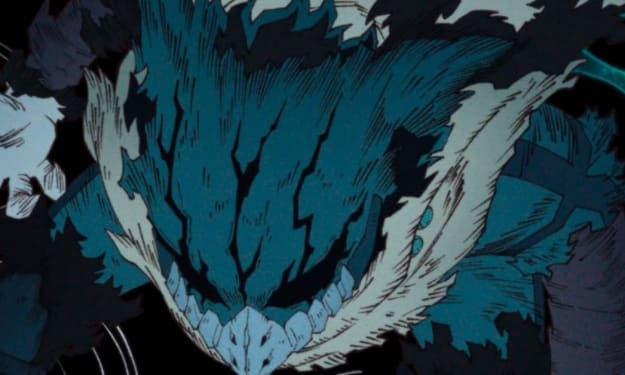
You’ll want a shower after this one.
With all the controversy surrounding Joker and its potential messages, I naturally have a lot to say after having seen it. Overall, it was technically a great movie, but I don’t think it really thought through its themes wholeheartedly. I’ll explain that in a bit.
Joker tells the story of Arthur Fleck and the derailment of his life leading him to a path of madness and violence. Because this is such a character-driven movie, it’s hard to discuss it without the themes and ideas it presents from its character development. Before I dive into all that, I wanted to draw attention to some of the technical aspects in this film. The cinematography and camerawork has been praised in every post I’ve seen about it, and rightfully so. For all the uncomfortable action on screen, it was mesmerizing to watch. Everything looked fantastic, and the 70s city aesthetic was done so well. I felt like I was in my grandmother’s old building in the Bronx, and that was exactly what they were going for.
My personal favorite thing in the whole movie was the soundtrack. The score for this film is the best I’ve heard all year, both in its sound and how it interacts with what’s happening on screen. If anything made me feel like the movie fell on one side or the other in regards to violence, this was it. Even in moments where Arthur was triumphant and he found recognition in violence and anarchy, the score in the background was ominous and sad. It didn’t feel like a win. It felt like we were watching something awful happen, and it was heartbreaking to watch. It made scenes where Arthur gets beat down by everything around him that much more impactful. I honestly had my hands covering my mouth most of the time from how uncomfortable it was, and the score played heavily into that atmosphere.
Regardless of all the controversy happening around this movie, there is one thing that I absolutely must say. No matter what you think of this character, Joaquin Phoenix deserves at least an Oscar nomination. This man was brilliant from the first moment he appeared. His Joker laugh might actually be my favorite in how perfectly it fits the version of this character he plays. His laughter is a result of neurological issues that I won’t spoil, but it’s something he can’t control. It comes out when he’s stressed, nervous, or just talking to people. It sounds like Phoenix actually couldn’t control it. He would laugh like it physically hurt him. There were times where I wasn’t sure if he was crying or laughing, or maybe both. Either way, I felt my chest constrict when he did it, and terrible as it was, it worked wonderfully. The way he moved, from the odd, mesmerizing dance, to the differences in how he walked depending on how he was feeling, was incredible. I’m honestly floored at the work he put into this role, including losing a ton of weight. Seriously, if you only have a passing curiosity in this movie, see it when it comes out On Demand or something, because he is absolutely stellar.
Now for the topic that’s on everyone’s minds: Does this movie condone violence? This is what made me a bit upset with the movie. I couldn’t decipher either way. I want to say it was leaning towards condemning violence, however it’s very subtle.
At first, I was very compelled that all of Arthur’s life altering troubles began once he was handed a gun for self-protection. Had he not been given that gun, he wouldn’t have had issues at work, or had his confrontation with the three rich Wall Street-looking boys in the subway. It was a catalyst for all the violence, and I saw that as something vindicating. Yes, Arthur has a mental illness, but as I am someone living with mental illnesses and know from experience, that doesn’t automatically mean one bad day will make you the leader of an anarchy movement. I thought the gun proving to be the starter pistol (pun most definitely intended) was a little nod to the fact that there is a gun problem in America that isn’t happening anywhere else in the world.
However, there is also the way that the movie goes in so hard on how awful the people around Arthur are. The beatdowns he gets are totally believable, however they seem so pointed and close together in this short timespan that it becomes a bit heavy-handed. Characters like Thomas Wayne and the subway boys are so awful that it seems to offer no option other than violence toward them. It’s a tricky situation; there are people walking into this movie ready to sympathize with this character and root for him. What seems to get crossed is the difference between offering an explanation for his actions versus an excuse. The horrible violence can be explained, but not excused; hopefully audiences will take that as the message and not hold Arthur up as some hero of a movement. When dealing with the Joker, it’s important to note that anarchy and chaos are his trademarks. He’s always been a fascinating character, but you can’t forget that though many categorize him as an antihero, he skews towards villain.
One thing that stuck out to me regarding the violence, however, is that the ending did seem to offer a bit of a choice to the viewer. Maybe it wasn't exactly a choice, but it showed two choices being made in response to anarchy in the streets. This is a decent sized spoiler, so skip to the next paragraph now if you don't want to know anything. Bruce Wayne has a small role in this movie, mainly just to be Thomas Wayne's son. He is also amidst the Gotham clown riot sparked by Arthur appearing on TV. The movie uses this as the night to kill Bruce Wayne's parents. While Arthur paints a smile on his face in blood, effectively choosing the violent path, the shot cuts to Bruce with his parents' blood on his face as they lie dead at his feet. This is the moment Bruce chooses to be Batman in response to seeing violence. It was a good way to show how you can respond to violence, to join or fight it.
Now I get to the part that really made me twitch. As mentioned above, I have my own diagnosed mental illnesses that I deal with on a daily basis. This movie was a hard pill to swallow for me. However, there are parts of this that are very poignant and make perfect sense. The delusions he has of what his life could be like are so well done in how they feel just too perfect to be real, but he wants them to be so bad. I also liked his writing in his journal something along the lines of “the hardest part of having a mental illness is having to pretend you don’t have one.” This speaks to the stigma against mental illness; when someone breaks a leg, you don’t tell them to walk it off or suck it up. It’s different with mental illnesses, and people are always quick to tell you to think differently. Another little tidbit is the way (minor spoiler alert) it becomes near impossible for Arthur to get the care he needs for his illness when funding is cut. Again, people love to complain about the mentally ill and how “dangerous” and "unstable” we are, but no one likes to put resources into it. It’s very difficult to find care; I’m currently working on transferring my medication to a new doctor after moving states, and it’s been a bit of a nightmare. This is a real issue that Joker brings up, and I liked that aspect of it.
I think what threw me was the very end, and what was unfortunately the climax of the movie. I have to go full spoiler alert here to discuss this, but my jaw dropped and I wanted to lunge at the screen shouting “NO!”
When Arthur gets to be on his idol Murray’s (De Niro in a small role) talk show, he goes on a rant about how society steps on the little guy. He ends the speech with “What happens when you cross a mentally ill person with a society that steps on them? Exactly what you deserve” before shooting De Niro. I was devastated. It directly connected unchecked mental illness with immediate violence and I was not a fan. I know I’m extra sensitive to this issue since it’s affected me, and I’ve seen people pull away from me because of some of my issues, but I hated that line so much. When mental illness goes untreated, more often than not it’s the person with the illness who suffers the most. It’s super easy to see this movie being used to demonize mental illness, and I hope I don't see too much of that come out of this movie.
I don’t regret seeing this movie. I’ll actually watch it again when it comes On Demand to investigate further. Right now I need to seriously do some more thinking about it. It’s a lot to digest, and I think it’s one to see for yourself to make a judgment. One thing I will say is that you must listen to the score, it’s honestly one of my favorite movie scores out there. And always remember to put on a happy face…






Comments
Sam is not accepting comments at the moment
Want to show your support? Send them a one-off tip.